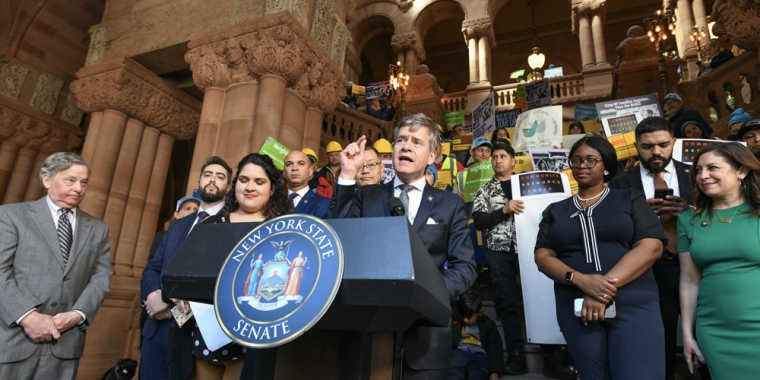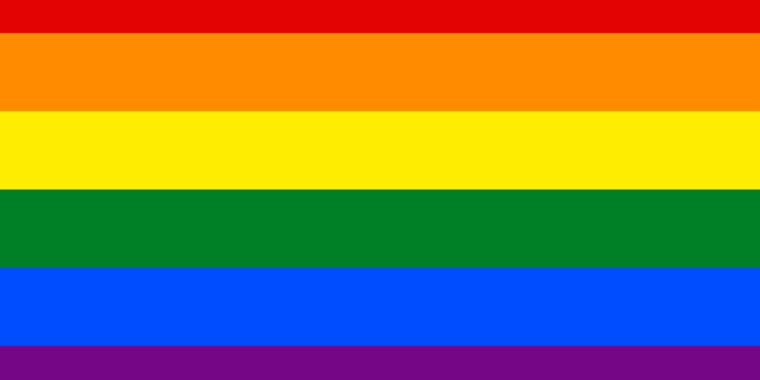
New York Small Business Pandemic Recovery Initiative Fact Sheet
May 17, 2021
New York Small Business Pandemic Recovery Initiative Fact Sheet
Updated December 6th, 2021
Overview
The New York State 2021–22 Executive Budget includes $1 billion in financial relief for small businesses. The funding initiatives include the Pandemic Small Business Recovery Grant Program, Restaurant Resiliency Program, Grants to Arts & Cultural Organizations, NYC Musical and Theatrical Production Tax Credit, and Restaurant Return to Work Tax Credit.
The Business Pandemic Recovery Initiative is administered by the Empire State Development Corporation (ESD). Their website has a form to help you identify which program(s) are right for your business and a list of organizations who can walk you through how to apply.
There are also federal programs administered by the U.S. Small Business Association (SBA). After watching our district’s small businesses suffer throughout the COVID-19 pandemic, I am elated by the Division of the Budget’s projections that small businesses in New York State will be able to access $5.228 billion in federal assistance.
Access to these initiatives and programs is crucial for the 27th District. My office and I have compiled information on each program and will keep you updated as more details and applications are finalized.
Pandemic Small Business Recovery Grant Program Applications for the Pandemic Small Business Recovery Program are now being accepted. Please visit https://nysmallbusinessrecovery.com/ for a link to the application and answers to FAQs. If you need help with the application you can contact the program’s help line at: 877-721-0097 Monday - Friday between 8:00 am - 8:00 pm Eastern Time.
What types of businesses are eligible for Small Business Assistance Grants?
- New York-based small businesses and for-profit independent arts and cultural organizations with 100 or fewer employees
- Non-profits, religious institutions, landlords, government-owned entities or elected official offices, businesses primarily engaged in political or lobbying activities, and businesses that received awards from the SBA Restaurant Revitalization Fund Grant Program are not eligible.
What are the other eligibility requirements?
- Businesses must have begun operation on or prior to March 1st, 2019 and continue to be in operation as of the date of application (though may be shuttered due to COVID-19 restrictions)
- Eligible applicants will be required to show annual Gross Receipts between $25,000 and $500,000 in 2019 or 2020 and demonstrate at least 25% loss in annual Gross Receipts in a year-to-year revenue comparison as of the same year over year loss of gross receipts as a result of the COVID-19 pandemic.
- Businesses cannot have received more than $100,000 in Paycheck Protection Program loans; $10,000 in COVID-19 EIDL Advance Grant; $5,000 in COVID-19 EIDL Supplemental Targeted Advance Grant; $150,000 in SBA Shuttered Venue Operators Grant; or any awards from the SBA Restaurant Revitalization Grant Program.
What are the grant amounts?
- Grant amounts will range from $5,000 to $50,000 and will be calculated based on annual Gross Receipts from 2019 or 2020.
Will the funds be taxed?
- No, funds awarded through the program are exempt from State income taxes.
What can the funds be used for?
- Grant funds can be used for all costs incurred as a result of COVID-19 related restrictions between March 1, 2020 and April 1, 2021, including:
- Operational costs including payroll, commercial rent or mortgage payments, local property or school taxes, insurance, utilities, HVAC or other machinery or equipment;
- Costs of necessary personal protection equipment (PPE) or other supplies and materials necessary for compliance with COVID-19 health and safety protocols
Which businesses will receive prioritization?
- Socially and economically disadvantaged business owners including, but not limited to, minority and women-owned business enterprises (MWBEs) and veteran-owned businesses.
How much funding is available?
- The State has allocated funding to provide grants to over 330,000 businesses, including 57% of New York State’s certified MWBEs.
What documents will I need to provide for the application?
- Proof of Gross Receipts (2019 and 2020 Business Income tax returns)
- Completed IRS Form 4506-C (Request for Transcript of Tax Return)
- Proof of business location and current operation
- Schedule of ownership (applicant must be at least a 20% owner in the business)
- Proof of number of employees (NYS-45 document)
- W-9 and bank account information
New York State Restaurant Resiliency Program
These grants are for restaurants that chose to provide meals and food to people within distressed or under-represented communities. Grant funds will allow restaurants to cover the costs of food, preparation, and delivery of meals to vulnerable populations. To learn more and apply to the Restaurant Resiliency Program, click here.
Arts & Cultural Organization Recovery Grant Programs
These grant programs are for nonprofit arts and cultural organizations located in New York who serve the State’s constituents. The programs are facilitated and administered by the New York State Council on the Arts (NYSCA). A list of available funds for individual artists and organizations can be found at: https://arts.ny.gov/resources/relief.
NYC Musical and Theatrical Production Tax Credit
This program is designed to jump start the entertainment industry and support tourism activity in New York City. Eligible productions can receive tax credit of up to 25% of their production expenditures for two tax years (2021, 2022, or 2023). To qualify, a Musical and Theatrical Production must be a live, scripted performance with one or multiple performers that is performed in a qualified production facility in New York City. Ballet, opera, musical solo, group, band or orchestral performances, or stand-up comedy performances are not eligible. The program’s guidelines can be reviewed here. Initial applications are now available and must be submitted prior to the first paid performance. The final application is being developed and will be posted when available. Final applications are due no later than 90 days after the production closes or 90 days following the program end date of March 31, 2023, whichever comes first.
Restaurant Return-to-Work Tax Credit Program
This program is designed to help small (less than 100 employees) independently owned food and beverage establishments in New York City bring staff back to work. Qualifying businesses are eligible for a tax credit of $5,000 per new worker hired, up to $50,000 per business. There is a Fast Track Option for applicants to claim the tax credit after August 31, 2021. To be eligible, businesses must be located in New York City or an area that was designated as an Orange and/or Red zone for at least 30 consecutive days and must be able to demonstrate COVID-related revenue losses. Businesses must hire at least one full-time worker. The application is not yet posted, but a list of required documentation is available here. To be alerted when applications are being accepted, please click here.
Economic Injury Disaster Loan Program (EIDL) (Federal Program): Through this $1.2 billion program, small business owners and qualified agricultural businesses in all U.S. states and territories are currently eligible to apply for a low-interest loan due to COVID-19. Loans will be in the amount of 24-months of economic injury with a maximum loan amount of $500,000 with proceeds to be used for working capital and normal operating expenses. Applications are now open: https://covid19relief.sba.gov/#/
Additional FAQs
Can I get assistance with New York State and federal pandemic relief grant and loan applications?
Yes. New York State has a network of partner organizations that provide confidential business counseling at no cost, including assistance with applications. Please click here for a list with contact information for organizations in New York City.
Are state programs redundant or federal programs that are also available?
No. State aid is intended for businesses that do not qualify for federal programs or whose needs cannot be sufficiently addressed by the existing federal aid or forgivable loan programs. This does not exclude those who have received federal loans or assistance other than grants.
Will ESD be able to keep track of which applicants meet these requirements?
Evaluating applications for grants and administering eligibility requirements are primary functions of the Empire State Development Corporation. There is nothing novel about ESD administering this program as a backstop, and the agency will be fully capable of screening and evaluating applicants. Additionally, assistance and outreach may be provided through partnerships with local entities that have community ties. ESD would also be required to publish detailed reports on the progress of the program every quarter beginning September 30.
Why are we limited to only $800 million (or $1 billion, including tax credits) for small businesses?
The $1 billion in State aid to small businesses in this budget complements the large pot of federal aid that is also available to businesses, which the Division of the Budget estimates could be about $13.3 billion from the Paycheck Protection Program, the Economic Injury Disaster Loan Program, grants for food-service businesses, and several other programs. The aid that the State is providing in this Budget is intended as a backstop to fill gaps in the federal aid programs.
Share this Article or Press Release
Newsroom
Go to Newsroom
